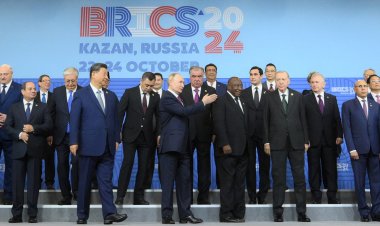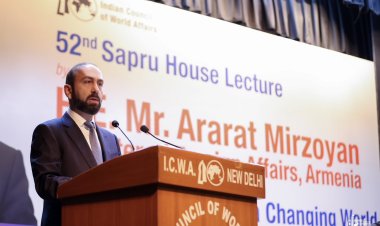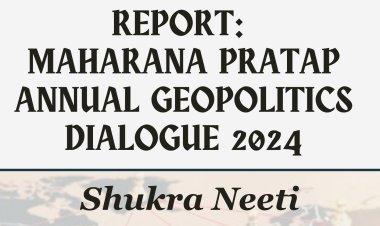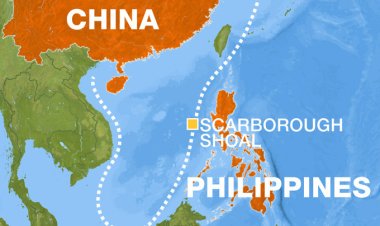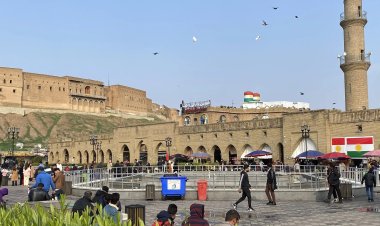India's PM Visit to Greece: Bridging a Strategic Gap
The article discusses the strategic partnership between India and Greece and the recent visit of PM Modi is a testament to the synergetic alliance between both countries. The bilateral collaboration between India and Greece extends beyond bilateral advantages which also has the potential of resonating in the realm of regional equilibrium and global advancement
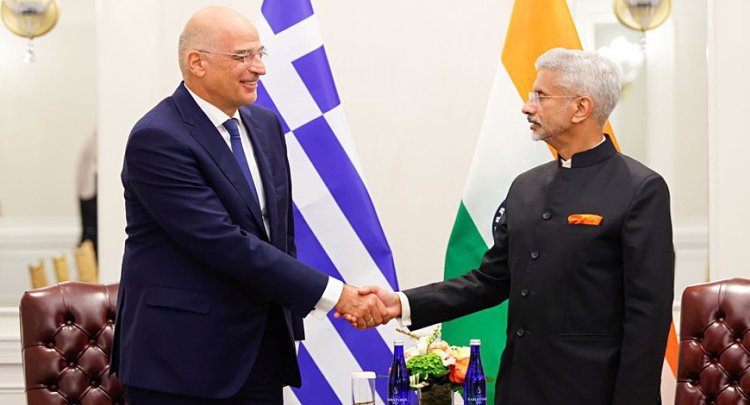
Analysis
By Vaasu Sharma
India and Greece share a historic relationship founded on democratic values and cultural synergy. Their centuries-old civilizations have enriched global thought in philosophy, literature, art, and science. The trade initiated by Greece's ancient traders along the Coromandel Coast in India between the 6th and 5th centuries BC as well as parallel mythologies bridged their bilateral cultures and forged affinity. Indian PM Narendra Modi's recent visit to Greece invigorated a 40-year hiatus at the top level. Earlier, the visit (June 2021) by Indian Foreign Minister Dr. S. Jaishankar, the first by an Indian foreign minister in the last 18 years, witnessed a renewed commitment to strengthen bilateral ties and establish a strategic partnership. The visit was followed by Greek Foreign Minister Nikos Dendias's visit (New Delhi, March 23-24, 2022) to advance the alliance.
India and Greece are two crucial players in the management of key geopolitical hotspots in Eurasia. While Greece has traditionally supported India's basic foreign policy objectives, India too shares Greece's emphasis on advancing international law and regional security. The PM’s visit highlights Indo-Greek interwoven potential to bolster cooperation in defense, maritime security, culture, and economics. The evolving partnership underscores diplomatic tenacity and a mutual drive for progress.
The India-Greece strategic partnership primarily focuses on revitalizing trade relations by exploiting untapped potential. As a gateway to Europe, Greece's geo-strategic location, aligns impeccably with India's growing economic prowess, offering mutual economic benefits. Greece’s GDP, standing at (2021) 8.5 %, one of the highest among EU members, also recorded an increase in Greece’s exports to India by 74,6% i.e. to € 134,3 million from € 76,9 million in 2020. Simultaneously, imports from India increased by 68.4% to € 699,2 million from € 415.1 million, marking an increase in bilateral trade by 69.4%, to € 833 million, a record for the last five years. An important landmark towards strengthening Greek-Indian friendly relations and cultural understanding was the uncovering of Mahatma Gandhi's statue in Athens as well as a painting exhibition in New Delhi to mark the 200th anniversary (2021) of the Greek Revolution. Recently, the Greek ambassador to India, Dimitrios Ioannou welcomed Indian strategic investments in ports, airports, logistics, renewables, real estate, information technology, agriculture, and pharmaceuticals, in consonance with ‘Greece 2.0 Masterplan’.
Another pivot of Indo-Greek strategic partnership is defense collaboration as the two countries share analogous security apprehensions and objectives. Notably, the defense collaboration between the two nations dates back to the 1990s. In the backdrop of Indian nuclear tests (May 1998) that evoked potential sanctions from the West, Greece diverged from the conventional trajectory and solidified its support for India by formalizing a Memorandum of Understanding (MoU) on Defense Cooperation during the same year. Similarly, the diplomatic rapport between the two countries becomes evident with Greece endorsing the Indian perspective on the Kashmir issue, stating it to be India’s internal affair while India also reciprocates by endorsing Greece's stance on the Cyprus issue.
While, the armed forces of India enjoys a position of considerable strength on the global stage, Greece’s army, as per Global Firepower (GFP), also ranked 30th among the world’s most powerful militaries. This military prowess is complemented by a substantial naval fleet. Importantly, Greece is presently engaged in a comprehensive overhaul of its military inventory and plans to allocate €10 billion for the acquisition of advanced aircraft and armaments in the forthcoming years. Greece's inclusion within the US-led NATO alliance could offer distinct strategic advantages to the Indian Air Force as Greece’s Hellenic Air Force (HAF) is also equipped with Rafale jets, akin to Indian Air Force. The operational experience of Greece in relation to the F-16 C/D aircraft, which is concurrently employed by the Pakistan Air Force, offers India to gather insights through the potential exchange of knowledge.
Greece, a key player of the Western security network is of immense geostrategic importance to India. Aiming to connect Europe, the Eastern Mediterranean, the Gulf, and even India to the east, Greece has emerged as a maritime force in the Mediterranean while offering an inviting platform for India's engagement. Enhancing both military power and diplomatic ties, Greece collaborates with Egypt, Saudi Arabia, Cyprus, France, and the UAE, guided by its strategic position amidst energy-rich Middle Eastern nations and EU energy consumers. As India aspires to connect with Greece, the synergies between their strategic aims could potentially amplify cooperation and contribute to the broader stability of these regions.
India and Greece both face the challenge of Islamic extremism and radicalization from Turkey-based actors, reportedly facilitated and supported by the current regime in Turkey. Turkey's purported backing of extremist factions in Kashmir has introduced a layer of intricacy to the prevailing situation, subsequently presenting formidable trials for India's security apparatus in its endeavors to counteract radicalization and uphold stability within the region. Likewise, Greece has encountered the repercussions of Turkey's endeavors to propagate extremism. The geographical proximity shared by these two nations, coupled with the historical animosities that have long characterized the relationship between Greece and Turkey, have collectively forged a milieu conducive to the potential proliferation of radicalization and extremist doctrines. The imperative task of addressing extremism and terrorism mandates a symbiotic collaboration and meticulous synchronization between Greece and India. Facilitating the exchange of intelligence, the reciprocal dissemination of optimal methodologies, and the strategic implementation of measures to thwart radicalization can significantly abate the peril emanating from entities associated with Turkey and concurrently foster the advancement of stability within the regional context.
Interpersonal interactions also assume a significant role, apart from crucial dimensions of economy and defense, in nurturing heightened connectivity between the two nations. India and Greece holds immense opportunities for enhanced cultural interactions, tourism, and in the educational sector. Such engagements have the potential to facilitate the proliferation of cultural pluralism, and further fortify interpersonal connections.
The evolving global influence of India, coupled with the strategic positioning of Greece within Europe offer a fertile ground for Indo-Greek collaboration at the international stage. With the convergence of their strategic interests and the judicious harnessing of their individual capacities, India and Greece are set to tread collaborative pathways, addressing pressing global issues, including but not limited to climate change, terrorism, and sustainable development. This concerted collaboration has the potential not only to elevate their prominence within the international community but also yield contributions towards engendering global harmony and stability.
To sum up, the recent visit of Indian Prime Minister Narendra Modi to Greece certainly unveils a comprehensive framework for strategic partnership between these two nations. By prioritizing diversified collaboration, encompassing trade, defense collaboration, strategic linkages, intercultural interactions, and international synergies, India and Greece are poised to stimulate a fortified and synergetic alliance. The bilateral collaboration between India and Greece extends beyond bilateral advantages which also has the potential of resonating in the realm of regional equilibrium and global advancement.
Disclaimer: This paper is the author's individual scholastic contribution and does not necessarily reflect the organization's viewpoint.
Vaasu Sharma is a Foreign Policy Analyst based in India. He is pursuing his Ph.D. at the University of Haifa in the International Relations Department. He previously worked with WION Tv Channel as a Research Consultant in New Delhi. He has done his Master in International Relations with a specialization in Diplomacy Studies from the University of Haifa in Israel. He was also associated with BRICS International Youth Forum in India from 2016 to 2017.



